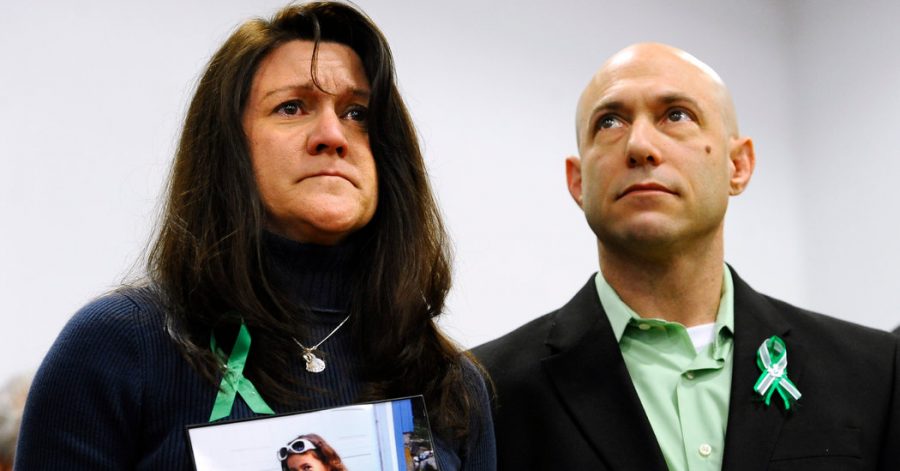A Sandy Hook Father’s Search for the Origins of Violent Behavior
April 29, 2019
Following the tragic Sandy Hook Elementary School shooting, the father of one of the victims, neuroscientist Jeremy Richman, devoted the rest of his life to uncovering the science behind violent behavior, until his own suicide was discovered on March 25th. Richman sought answers to the causes and motivations of violent crimes, such as the one that killed his daughter Avielle. After that incident, Richman and his wife, Jennifer Hensel, founded an organization named after their daughter to advocate for brain research and unravel the reasons behind violent behavior.
The neuroscientist researched society’s attitude towards mental illness, specifically how people view violence as a characteristic or personality problem instead of a malfunction of the brain. Richman mentioned that when doctors diagnose mental illnesses, they word it in a way that labels the sufferer of the disease. They say “you’re hyperactive” or “you’re depressed,” compared to how one would describe other diseases as “you have the flu” or “you have a broken bone.” This causes one to blame oneself and isolate oneself from others, preventing one from opening up and reaching for help. Richman didn’t, however, blame violent behavior—instead, he sought the biological reasons behind it and tried to understand them. However, Richman didn’t focus solely on violence; he also explored loneliness, sadness, and despair in his field of interest. He was determined to help the public understand more about the whole mind.
Regarding the question of what causes violence, Tenafly High School biology teacher Mr. Adam Rendell was able to give a thorough and in-depth response to whether violence may be caused by brain disorders. “I do think that violence can be caused by brain disorders,” Mr. Rendell said. “It’s hard to imagine that anybody would commit such an act of hatred and violence unless there was some sort of chemical imbalance in the brain or neurons were not firing properly. I do think people can commit violence without having that, but I think it would be more targeted to somebody whom they knew personally or that were angry about something, but I still think the act of violence itself is something irrational. We know in the animal kingdom this does exist, where amongst animals they will fight and be violent in order to get a resource or compete for a mate or something like that in nature. But to massively kill a large number of people, for no particular reason, whom you have no relationship with or no connection with, to me, there must be something wrong biologically.”
There are ways one can help reach Richman’s goal and contribute to neuroscience. One of those ways is through education that deepens our knowledge of violent behavior.
“I think people have to talk about it in the news,” said Sherry Feng (’22). “I also think schools should expand towards this kind of stuff. Spark interest in students. We don’t learn much about the brain at school. All we learn about is biology. If you want to go in depth, you have to find out yourself. You aren’t exposed to neuroscience at school. If teachers talked more about it and people in the news talked more about it, then I think it would help expand the study of brains.”
Others believe that methods of prevention might stem the growing number of mass-killings. Ways of preventing such crimes include early intervention and treatment, as well as an increase in funding for research of the issue.
“Instead of brain study,” said Erik Lee (’22), “why don’t we prevent them from doing it in the first place by providing more care for them and finding some indicators of violence beforehand? Obviously people around them would sense something.”
“As a student I can’t directly support them, but I can provide money or funding of some kind,” continued Erik Lee (’22). “Because school shootings are definitely a problem, at least in American schools, I’m pretty sure everyone would be able to find it an important cause.”
When asked before his death about what people could do to help, Richman suggested “having discussions about brain health, talking about your feelings and your motivations for doing things and recognizing that the brain is just another organ….That’s really important. It’s not a character flaw if you feel depressed.” He emphasized that we should not blame the sufferer, but the sufferer’s brain—an organ.
Jeremy Richman is honored for his courage to look beyond his personal emotions and take action to actually prevent future tragedies and make a better future.

















































































































































